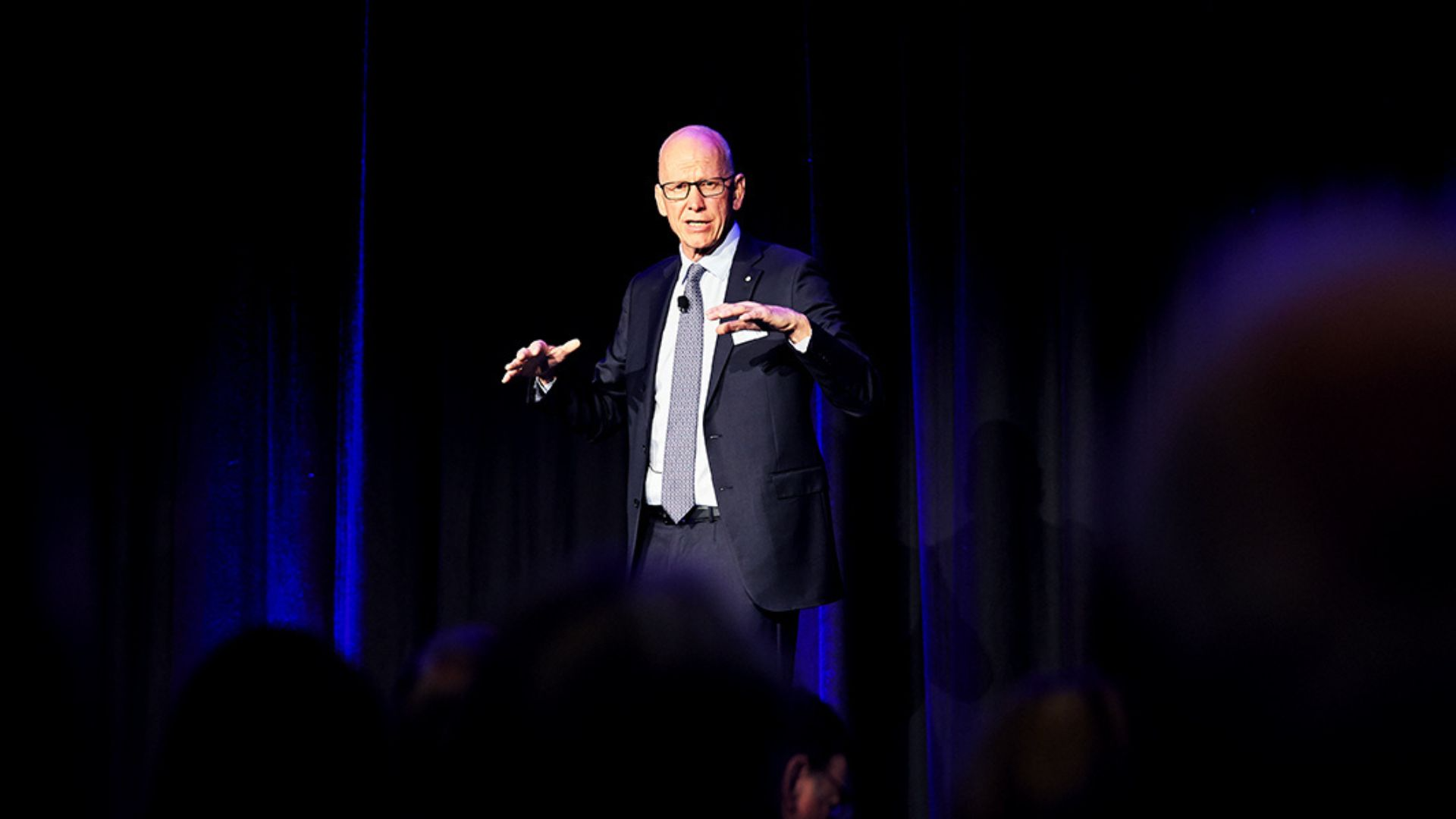Readers' request: Two more opinions on the changes to franking credits
We recently covered the Government's proposed changes to Australia's franking credit system, and readers, like you, had a lot to say.
Some revealed the changes would affect them significantly if passed and thanked Wilson Asset Management's Geoff Wilson AO for speaking out on their behalf. Others argued that companies were "gaming the system", that Wilson's comments were "irresponsible", and that Livewire should be ashamed of publishing "unabashed political commentary" that has no place on our platform.
.jpg)
To those who argued the latter, I respectfully disagree. As an investment insights publisher, Livewire always has (and will continue to) cover the issues that impact its readers - no matter how big or small.
Many of you requested that we reach out to more experts for their views on the changes, and as always, we are happy to oblige.
Enter Australia's very own dividend doctor Dr Don Hamson of Plato Investment Management, and respected AMP economist Shane Oliver for their views on the changes to the dividend imputation system.
And their thoughts, particularly Oliver's, are sure to surprise you.
.jpg)
Why the changes WON'T have a huge impact
While you may have predicted that Dr Hamson is a fan of the franking system (as an income investor with a large number of retiree clients), it may surprise some to learn that Oliver is a "committed supporter" of the system too.
And while they worry that the recently proposed changes could become a slippery slope for more alterations in the future (or the abolishment of the system in its entirety), they do not believe the two changes will have much of an impact on investors.
As a recap for those who didn't read our previous article on the subject, in September, Treasury released draft legislation that could prevent companies from distributing franking credits to shareholders if it deemed these were funded by capital raising activities.
Then, a month later in the Federal Budget, the Government announced it would be closing "a loophole" by eliminating the payment of franked dividends to Australian investors through off-market buy-backs.
"In the grand scheme of things, it's not going to have a huge impact," Oliver explained.
"And from an economic point of view, it's hard to argue against because it's relatively small, and most people won't be affected by this, if at all.
"However, there is a view that any move to weaken the franking system should probably be avoided in the sense that it could end up being the thin edge of the wedge - as in, a minor change that ends up dismantling the system."
Dr Hamson agrees. And while he and his investors would prefer the Government did not make any changes to the franking system, he admits the credits attached to buybacks were a "bit of an anomaly".
"If the Government stops and doesn't announce any more changes, I don't think investors should be worried," he said.
"Raising capital to pay dividends is incredibly minor and there are only a couple of instances of that. We've just gone back ourselves and looked at the impact of buybacks for our fund over the years, and it's been fairly trivial. It represented something like 0.3% per annum on average."
It's actually a good time to introduce this change, he added, as Aussie investors have enjoyed the benefits of several large buybacks of late (and these are typically sporadic - as in, they don't happen every year).
"We've seen big buybacks from seven or eight companies in the last 18 months, like Westpac (ASX: WBC), Commonwealth Bank (ASX: CBA), and Woolworths (ASX: WOW). BHP Group (ASX: BHP) flushed out a lot of franking with its spin-off with Woodside Energy Group (ASX: WDS)," Dr Hamson said.
"By our numbers, we've actually seen franking credit balances fall by over $10 billion for ASX 300 companies over the last 18 months."
"That's actually come down from the previous year by about $11-12 billion thanks to the large number of buybacks and the distribution from BHP when it spun off its oil and gas assets to Woodside," Dr Hamson said.
"So I'm not sure where Geoff Wilson got the $85 billion in unused franking credits figure because our calculations show that just a bit over $50 billion is sitting on the ASX 300."
A deeper dive into the changes to off-market buybacks (because you asked for it)
The impacts of the changes to franking credits linked to capital raising initiatives are likely to be so minor that you "question why Treasury bothers doing it", Dr Hamson said. However, off-market buybacks have been beneficial to income investors.
"It is a little bit of an anomaly to be able to buy back your stock by paying a fully franked dividend. So to me, it was nice for retirees and low-tax investors to have them, but it's not the main game," he explained.
"The bulk of franking credits are distributed through normal dividends and special dividends."
So, in case it wasn't clear, these changes are NOT the end of franking credits.
While the term "on-market buyback" describes a company buying back its shares over a specific timeframe on the ASX and then cancelling these shares, "off-market buybacks" enable a company to return excess franking credits to investors.
"Off-market buybacks are a way that a company can buy back its own shares to reduce its capital base. They are usually done after a company sells an asset - so they have excess cash and excess retained earnings - or by a company with excess franking credits," Dr Hamson clarified.
"Those shareholders who value franking credits will tender their shares in, and those that don't won't."
It is obviously in a company's best interest to reduce its shares on issue, as this can be EPS accretive (as in, there are fewer shares on issue to divide a company's earnings by).
Why these changes are a "sneaky" way of raising revenue (and how Dr Hamson and Oliver believe the Government could bolster the Budget instead)
As mentioned above, these changes are unlikely to majorly impact investors like you and I. However, Dr Hamson does worry that they "undermine the integrity of and investor confidence in the franking credit system."
"That's the issue with these two changes together," he said.
"A lot of people are questioning what's next and hopefully, there is nothing. Hopefully, they don't tamper with the franking credit system anymore. That is my main concern and it's the main question my clients are asking."
Meanwhile, Oliver argues there is "no logical argument for implementing these changes apart from raising more revenue for the federal government".
"That's all it would do. It's a sneaky sub-optimal way of raising revenue," he said.
Instead, both Dr Hamson and Oliver argue for the increase of the GST rate or the reduction of Government expenditure.
"Governments aren't the most efficient spenders of money," Dr Hamson said.
"I think they need to take a long, hard look at themselves in terms of where they're spending money and try to be more efficient in doing that. Australia already has a very high percentage of revenue coming from tax - higher than many countries."
Oliver agrees, arguing that Government expenditure is high compared to normal. "This will weigh on productivity in the economy," he said.
There are more efficient, less distortionary ways of raising revenue than fiddling with the franking system, Oliver added.
"The things that are commonly described as 'distortionary' are the capital gains tax discount, negative gearing, the franking credit system and the favourable tax rate applied to superannuation. And if you look at each of those logically, they make sense from an economic standpoint," he said.
Franking, for one, avoids double taxation on dividends.
"We shouldn't be having regular debates on the subject," Oliver said.
Meanwhile, the favourable taxation of superannuation was partly designed to encourage savings, he explained, which makes "economic sense" as there is less pressure on the Government to support pensioners down the line.
"It's a part-way step towards taxing spending and not taxing income," Oliver said.
Negative gearing also makes sense from an economic standpoint, as it offsets the interest costs of an investment against your income, he added.
"If you remove negative gearing on residential property, then you would have to review the other areas of the economy, as otherwise, we would distort the system and discourage investment in property relative to other forms of investment," he said.
"Of course, there is an argument that negative gearing is exploited - that some people don't own one investment property but 15, 20 or more (and those people show up on A Current Affair from time to time). But the concept of negative gearing is actually a standard one within our tax system."
However, Oliver does believe Treasury should be looking more closely at capital gains tax concessions, which he dubs "overly generous".
"If you hold an investment for more than a year, your tax rate on the capital gains on that investment is half your marginal tax rate," he explained.
"So you could argue that's overly generous in this environment, which is why Paul Keating, when he introduced the capital gains tax system in the first place, had an arrangement where you were only taxed on real capital gains.
"If you bought a property and it went up 20% over two years, and the inflation rate rose around 5% per annum, which is 10% in total, you were only taxed on the 10% rise in value, which makes sense to me. But sometime in the 90s it was changed and the capital gains tax discount is now too generous."
He also points to the GST as a way for the Treasury to raise revenue instead of changing the franking system.
"If we want to raise more revenue, we should be looking at increasing the GST rate and arguably lowering corporate and personal tax rates in the process, because income tax is distortionary, whether it's a company tax rate or personal tax rate, it's distortionary," Oliver said.
"The GST is the least distortionary tax because it's the same rate on everything. But that obviously has huge political implications. And so often, I think governments and Treasury turn to franking credits and negative gearing instead."

Join the conversation
Last time we published a piece on the changes to the franking credit system it generated a healthy discussion. Let's get the ball rolling again in the comments section below.
Never miss an update
Enjoy this wire? Hit the 'like' button to let us know. Stay up to date with my content by hitting the 'follow' button below and you'll be notified every time I post a wire.
Not already a Livewire member? Sign up today to get free access to investment ideas and strategies from Australia’s leading investors.
2 topics
5 stocks mentioned
3 contributors mentioned

